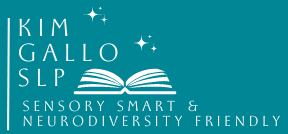As a speech-language pathologist, I am increasingly aware of the intersectionality between autism and gender identity. It is essential to recognize and celebrate the diverse experiences of autistic individuals who identify as transgender or non-binary.
In our journey towards creating an inclusive society, it is crucial to recognize and celebrate the intersectionality of individuals with autism. Autism, a neurodevelopmental disorder, affects people of all genders, and it is essential to provide support that acknowledges and respects the unique experiences and challenges faced by autistic individuals across different gender identities. Let’s explore how to support autistic individuals while embracing intersectionality and promoting inclusivity.
Understanding Diverse Gender Identities:
To support autistic individuals of all gender identities, it is vital to cultivate an understanding and awareness of diverse gender expressions. Educate yourself and others about gender diversity, including non-binary, transgender, and genderqueer identities. Recognize that autism intersects with various gender experiences; each individual’s identity should be affirmed and respected.
Person-Centered Approach:
Adopt a person-centered approach when providing support to autistic individuals. Recognize that gender identity is integral to an individual’s identity and self-expression. Take the time to understand and respect each person’s unique needs, preferences, and experiences. Tailor interventions, therapies, and communication strategies to align with their gender identity, ensuring that support is inclusive and affirming.
Safe and Inclusive Spaces:
Create safe and inclusive spaces for autistic individuals across the gender spectrum. This includes educational environments, healthcare settings, workplaces, and community spaces. Establish policies and practices that address issues related to gender identity, ensuring that these spaces are free from discrimination, harassment, and bias. Encourage an atmosphere of acceptance and respect where autistic individuals feel comfortable expressing their gender identities authentically.
Collaborative Support Networks:
Promote collaboration among support networks to address the intersectional needs of autistic individuals. Families, caregivers, healthcare professionals, educators, and community organizations should be involved in providing a comprehensive support system. Emphasize open communication and shared decision-making, fostering an environment where the diverse needs of autistic individuals across different genders are understood, validated, and addressed collaboratively.
Advocacy and Awareness:
Advocate for the rights and inclusion of autistic individuals across diverse gender identities. Participate in raising awareness about the intersectionality of autism and gender, promoting societal understanding and acceptance. Support organizations and initiatives that prioritize the voices and experiences of autistic individuals, especially those from marginalized communities, amplifying their stories and advocating for equitable access to resources and opportunities.
Supporting autistic individuals across different gender identities is vital to creating an inclusive society that values intersectionality. By understanding and embracing diverse gender expressions, adopting a person-centered approach, creating safe spaces, fostering collaborative support networks, and advocating for inclusivity, we can ensure that autistic individuals feel seen, respected, and empowered. Let us celebrate the rich tapestry of identities within the autism community and work towards a future where everyone’s unique experiences are acknowledged and valued.

